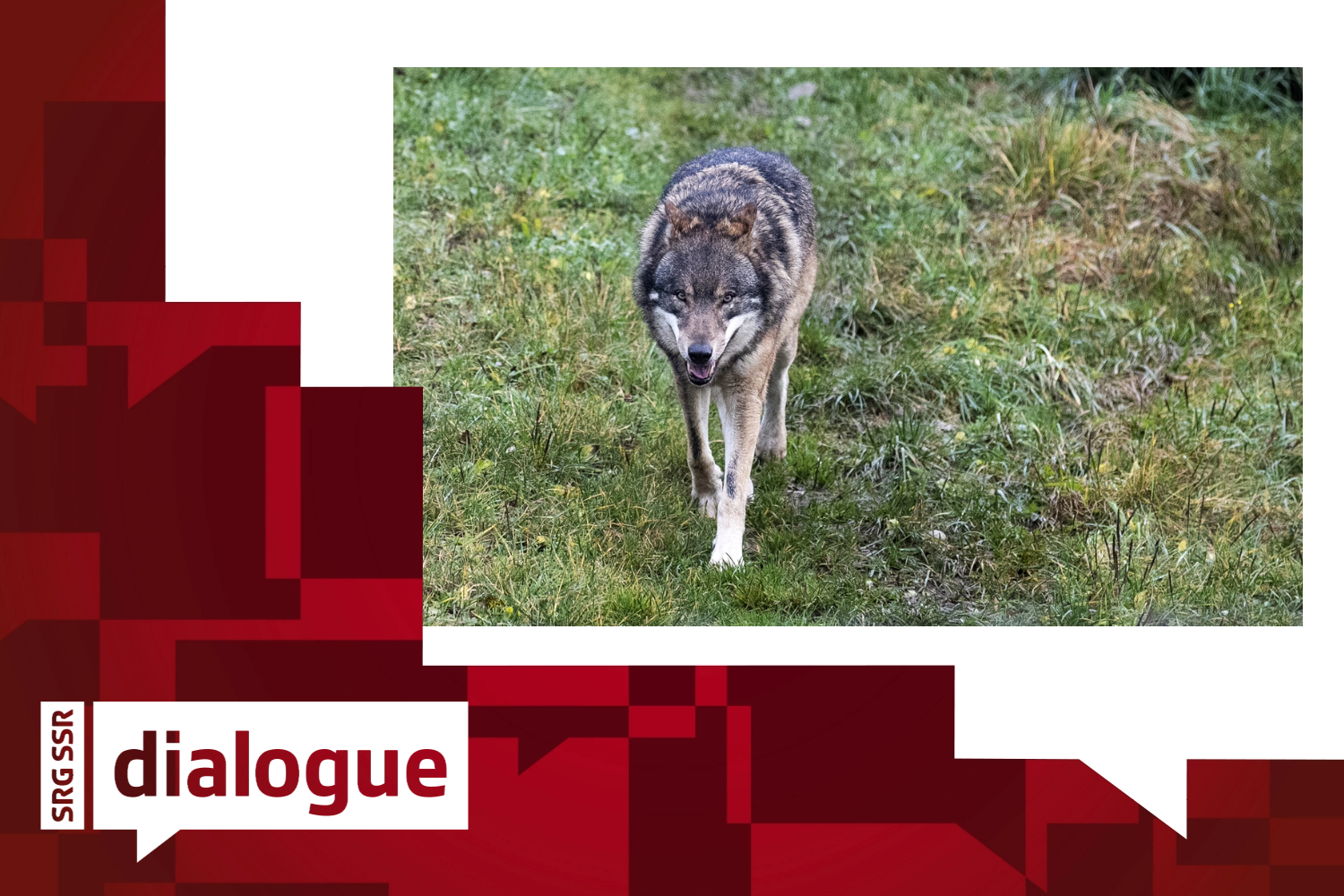
On wolves, ‘priority should be given to scare shots’, says expert

In the columns of Le Matin Dimanche, wolf expert Jean-Marc Landry believes that Swiss Environment Minister Albert Rösti's decision to rely entirely on shooting is short-sighted. For the expert, this solution can nevertheless be justified in certain cases.
+Get the most important news from Switzerland in your inbox
Landry spoke to Le Matin Dimanche on the wolf pack in the Brévine valley, western Switzerland. In this case, he believes that “shooting to regulate the population is the wrong solution, because it doesn’t solve the problem in the long term. Depending on the individual eliminated, we run the risk of destructuring the pack, which can encourage dispersal and increase depredation elsewhere,” he said.
Earlier this week, the canton of Neuchâtel authorised the shooting of four wolves, that is, half the pack.

More
More than 100 wolves shot in Switzerland last year
“From now on, priority should be given to scare shots to educate a wolf rather than systematically favouring lethal shots, which are difficult to carry out in an environment made up of wooded pastures and forests,” said Landry. “The shooting window is narrower there than in the Alps, where the presence of land means that shots can be fired from a greater distance.”
‘The wolf is here and we’ll have to deal with it’
In a more general context, the expert on the large predator does not believe in the pure and simple eradication of the wolf in Switzerland: “If that were the case, neighbouring countries such as Italy and Germany would have to decide the same thing. The wolf is here, and we will have to deal with it,” Landry said.

More
Wolves in Switzerland: cull or protect?
“Rösti’s decision to rely entirely on shooting is short-sighted. When the wolf first attacked Switzerland, in the Val Ferret in 1995, [canton] Valais made it clear that it did not want to tolerate the presence of the wolf. Thirty years later, the wolf is still there,” the expert added.
With attacks on cattle on the increase in the Jura region, the expert believes that it is up to politicians to intervene to help farmers: “It’s a question of deciding where you want to put the resources. In Switzerland, cattle are considered unprotectable, so there’s no federal funding involved”.
“Farmers are on their own when it comes to the problem,” he said.
For Landry, lethal shooting is part of a package of protection measures, but is not the solution on its own: “Instead of focusing everything on eliminating wolves, we could fit more of them with GPS collars to understand the relationship and interaction between wolves and cattle”.
What is your opinion? Join the debate:
Translated from French with DeepL/gw
We select the most relevant news for an international audience and use automatic translation tools to translate them into English. A journalist then reviews the translation for clarity and accuracy before publication.
Providing you with automatically translated news gives us the time to write more in-depth articles. The news stories we select have been written and carefully fact-checked by an external editorial team from news agencies such as Bloomberg or Keystone.
If you have any questions about how we work, write to us at english@swissinfo.ch.

In compliance with the JTI standards
More: SWI swissinfo.ch certified by the Journalism Trust Initiative





























You can find an overview of ongoing debates with our journalists here . Please join us!
If you want to start a conversation about a topic raised in this article or want to report factual errors, email us at english@swissinfo.ch.